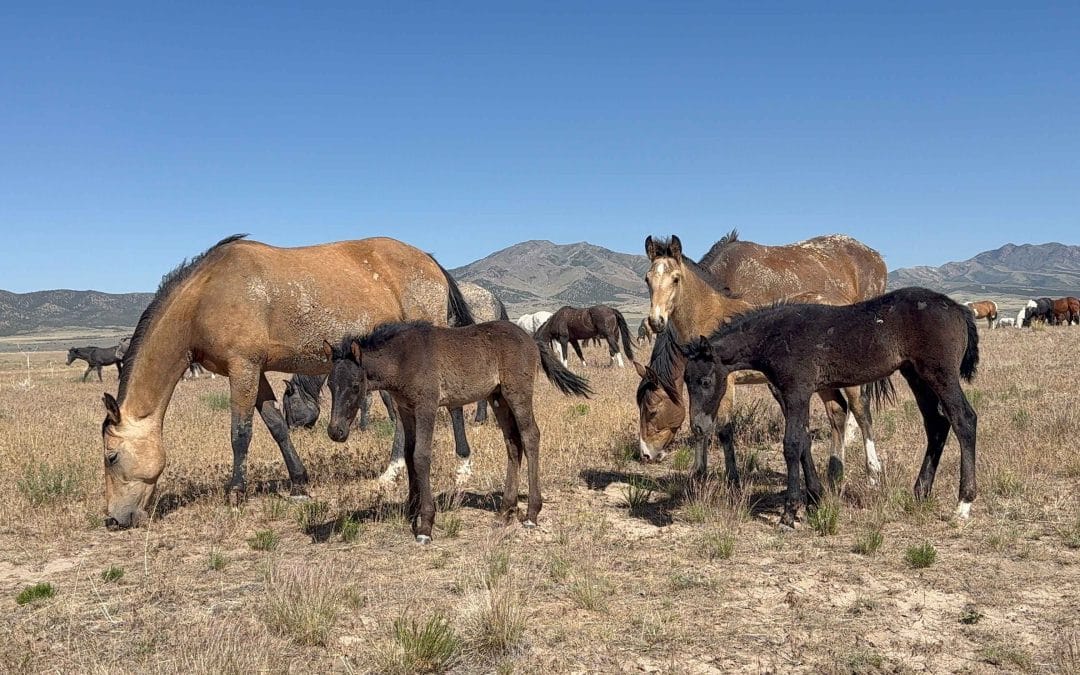You might have experienced this too: You’re at the barn, chatting with other horse people, or you post something about your gentle approach online – how you let your horse make choices, how you focus on trust, how you don’t believe in dominance-based training.
Maybe you even bring up wild horse behavior, sharing how true leadership isn’t about force, but about collaboration. You’re not trying to start a debate – just sharing what you’ve learned.
And then… someone corrects you.
Not just casually. Not with curiosity. But with absolute certainty that you’re wrong.
They might say:
🗣 “Horses need discipline!”
🗣 “If you don’t move their feet, they’ll dominate you.”
🗣 “You’re being too soft—your horse doesn’t respect you.”
You try to explain what you’ve seen, what you’ve learned. Maybe you even share a story. But instead of an open conversation, things get tense. They push back. They dig in.
Suddenly, it feels like no matter what you say, they’re not even hearing you.
Why does this happen? And more importantly—how do you respond in a way that actually helps, instead of just creating frustration for both of you?
Why Facts Don’t Always Change Minds: The Backfire Effect
It seems logical: if someone believes something that isn’t true, you give them facts, and they change their mind. Right?
Well… not exactly.
Psychologists call this the Backfire Effect. It happens when people are confronted with information that challenges their existing beliefs—and instead of reconsidering, they cling to them even harder.
Why? Because beliefs—especially about how we interact with horses—aren’t just about facts. They’re about identity.
For many horse owners, their methods aren’t just techniques; they’re personal. They may have learned their approach from a respected mentor, a well-known trainer, or even family members. Questioning those methods feels like questioning who they are as horse people—and that’s uncomfortable.
When someone feels their identity is under threat, their brain doesn’t say, “Hmm, let’s reconsider.” It says, “DEFEND. ATTACK. PROTECT.”
And that’s when you see it—the crossed arms, the dismissive tone, the refusal to listen.
So, does that mean there’s no way to reach them? Not at all. But facts alone won’t do it.
Connection Before Correction: A Better Approach
If someone is deeply attached to their beliefs, the worst thing you can do is hit them with raw facts right away. It feels like an attack—even if that’s not your intention.
Instead, you need to build trust first.
Psychologists call this Cognitive Empathy—understanding where the other person is coming from and acknowledging their experience before challenging their beliefs.
Here’s what that looks like in practice:
1. Start with Common Ground
💬 Instead of: “That’s not true—there is no ranking within a wild horse herd!
✅ Try: “I used to think that too! I used to believe there is a fixed ranking and that horses need a strong leader to keep them in line.”
This instantly lowers defensiveness because you’re showing them that you’re not an outsider attacking their beliefs—you actually understand where they’re coming from.
2. Ask, Don’t Tell
People resist being told they’re wrong. But they love discovering things for themselves.
💬 Instead of: “You’re just making your horse shut down with all that pressure.”
✅ Try: “That’s interesting—have you ever noticed that some horses stop reacting after a while? What do you think is happening in their mind at that moment?”
This invites curiosity instead of confrontation. It shifts the conversation from debate mode to exploration mode.
3. Share a Story, Not Just a Fact
Stories stick in people’s minds far longer than data. If you want someone to remember something, give them an example that feels real.
💬 Instead of: “Wild horses don’t move each other’s feet to establish dominance.”
✅ Try: “It’s fascinating to watch wild horses interact. The stallion didn’t have to push, drive, or control anyone.
With subtle signals – sometimes barely visible – he offered direction, and the herd chose to follow.
Not because he was “the boss”, but because his decisions made sense and felt safe.
Now, instead of debating, you’re painting a picture—and they are more likely to engage with it.
4. Let Them Save Face
No one likes to admit they’re wrong—especially in front of others. Give them a way to adjust their views without feeling humiliated.
💬 Instead of: “You’re completely wrong about horse leadership.”
✅ Try: “I think a lot of us were taught that, and it made sense at the time. But as I learned more, I started seeing things differently. Maybe we’re all just figuring it out as we go.”
This makes change feel safe instead of threatening.
When to Walk Away
Some people are open to new ideas right away. Others? Not so much. They are deeply attached to their old beliefs.
If someone refuses to listen, keeps escalating, or just wants to argue, remember: you don’t have to convince everyone.
You can plant a seed—a small idea that might grow over time. Maybe they’ll remember your words later, when they see something that makes them rethink.
Or maybe they won’t. And that’s okay. Because the way you treat your horse—and how they respond to you—will speak louder than any argument ever could.
Final Thoughts
If you’ve ever felt frustrated or dismissed by other horse people, you’re not alone. But you don’t have to fight to prove you’re right.
Instead, try connection before correction. Find common ground. Ask questions. Tell stories. Let people come to their own conclusions.
And most importantly? Keep leading by example.
Because at the end of the day, your horse knows the truth. And that’s what really matters.
Because at the end of the day, your horse knows the truth. And that’s what really matters.
🦋 Want to explore this more deeply? Inside the Being Herd Program, you’ll find weekly videos, in-depth Deep Dives, personal support, and practical guidance on natural horse communication. You can also download my free guide. You can also check out my latest YouTube videos for more wild horse insights.


Recent Comments